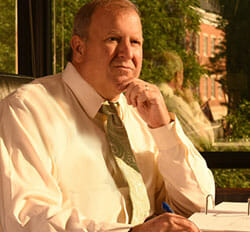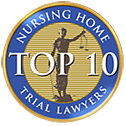How You Can Support Safer Facilities in Maryland
 Despite the fact that elder abuse affects as many as two million U.S. seniors annually, many people are unaware of it until it touches their own family. A large number of cases go undetected, with as few as one in 14 victims reporting abuse to law enforcement or a social service agency. The first step in working toward better quality nursing homes in Maryland is to acknowledge that there is a problem, to become aware of what kind of care is available in our state, and to try to determine how many of our citizens are in need of services.
Despite the fact that elder abuse affects as many as two million U.S. seniors annually, many people are unaware of it until it touches their own family. A large number of cases go undetected, with as few as one in 14 victims reporting abuse to law enforcement or a social service agency. The first step in working toward better quality nursing homes in Maryland is to acknowledge that there is a problem, to become aware of what kind of care is available in our state, and to try to determine how many of our citizens are in need of services.
In 2014, Maryland had 24,513 residents in 228 certified nursing homes around the state. That number is expected to keep growing as the state’s population is aging, with people over the age of 60 making up almost 20 percent of Maryland’s 5.7 million total residents in 2010. By 2030, that number is expected to hit 25.8 percent. Notably, people aged 80-84 now make up the fastest-growing segment of our state’s population; and by the year 2040, the number of people in that age group is expected to be 219,255.
When it comes to healthcare, everyone wants the best possible scenario for their loved ones. At the Law Offices of Roger S. Weinberg, LLC, we believe that our elders should be treated with respect, and there may be no greater injustice than when they are neglected or abused in a facility that is supposed to care for them. Victims are often frightened, vulnerable and unable to protect themselves.
 Our seniors deserve better, and Roger S. Weinberg has been advocating for them and their family for over three decades. He has lectured nationally on the subject of nursing home abuse, and written educational articles for the American Association for Justice and the Maryland Association for Justice. In 2001, he founded and was the first chairperson of the Maryland Trial Lawyer’s Association’s Nursing Home Litigation Section (now MAJ). If a loved one suffered an injury while in a nursing home or is not thriving while in the care of a nursing home, you may be right to suspect mistreatment. Contact us to arrange a no-cost, confidential consultation. Call 410-825-3161 or fill out this online form.
Our seniors deserve better, and Roger S. Weinberg has been advocating for them and their family for over three decades. He has lectured nationally on the subject of nursing home abuse, and written educational articles for the American Association for Justice and the Maryland Association for Justice. In 2001, he founded and was the first chairperson of the Maryland Trial Lawyer’s Association’s Nursing Home Litigation Section (now MAJ). If a loved one suffered an injury while in a nursing home or is not thriving while in the care of a nursing home, you may be right to suspect mistreatment. Contact us to arrange a no-cost, confidential consultation. Call 410-825-3161 or fill out this online form.
Supporting Safer Care Facilities in Maryland
Take a look at some of our other pages relating to safer elder care facilities:
- Maryland Safety Rating System(s)
- Guide: Choosing a Nursing Home
- Celebrating Safer Nursing Homes
- Identifying Potential Problem Facilities
- Support Safer Laws & Regulation
All too often, nursing homes seem to follow procedures that violate the federal Nursing Home Reform Act that was passed in 1987 to institute higher standards for patient care. For example, some of the problems addressed by the Act, yet commonly faced by residents in nursing homes today, include:
- Being assessed charges not authorized in the admission agreement
- Discrimination based on Medicaid eligibility
- The threat of eviction for being difficult
- Excessive use of feeding tubes
- Not being allowed to participate in developing the patient care plan
- Being physically or medically restrained for convenience or discipline reasons
- Restricted visiting hours.
Taking an active role in planning a patient’s care and asserting his or her legal rights are important ways to directly challenge the serious problems that run throughout the nursing home industry. Certainly, having enough skilled workers has a direct impact on the ability to assess, monitor, care for and safely discharge patients. State and federal enforcement is also key.
Agencies in Maryland That Help
The Maryland Department of Aging offers an Ombudsman Program to advocate for residents of nursing homes and care facilities. Ombudsmen work to resolve issues faced by residents and to bring about change at local, state, and national levels to improve care and quality of life. Ombudsman means advocate. Call 410-767-1100 to contact the State Long Term Care Ombudsman. Find the list of ombudsmen for each county in Maryland at this link.
The Long-Term Care Unit of the Maryland Department of Health and Mental Hygiene is responsible for monitoring nursing homes’ compliance with the Reform Act and can issue warnings or impose penalties to force a nursing home to fix a particular violation. More information can be found here.
Office of the Maryland Attorney General
The Maryland attorney general has a free downloadable PDF book that talks about what you need to know about nursing homes in general and in choosing a place for a loved one.
Maryland’s Health Care Commission offers a consumer guide to long-term care on its website. It includes an online search service to locate nursing homes, adult day care, assisted living and hospice caregivers.
Visit www.medicare.gov to read the detailed list of rights afforded to residents of Medicare-certified nursing facilities.
The site also offers Nursing Home Compare, a service that lets visitors compare information about nursing homes. It contains quality-of-care information on every Medicare- and Medicaid-certified nursing home in the U.S.
The National Consumer Voice for Long-Term Care advocates for public policies that support quality care. Check out their initiatives at www.theconsumervoice.org.
The American Health Care Association is the nation’s largest association for long-term care providers, advocating for quality care and services. Their website offers numerous resources for residents and families.
Reporting Nursing Homes in Maryland
When things go wrong in a nursing home, it needs to be reported to the authorities. Situations can’t be improved if officials don’t know what is happening on a daily basis. Report any problems or concerns right away:
- Call 1-800-91-PREVENT (1-800-917-7383) to reach Maryland Adult Protective Services
- Call 1-800-AGE-DIAL (1-800-243-3425) to reach the Maryland Department of Aging
- Call 1-888-743-0023 to contact the Maryland Office of the Attorney General
- Call 1-877-402-8201 for Maryland’s Office of Health Care Quality.
Contact Our Office
When a facility does not live up to expectations and renders poor care, it must be held accountable for failing to meet its legal obligations. If you need assistance with any legal issues concerning a loved one who is currently living in a Maryland nursing home, call the MD nursing home negligence attorneys at the Law Offices of Roger S. Weinberg, LLC, at 410-825-3161. We are very familiar with the laws that govern elder abuse, and we have successfully handled countless nursing home mistreatment cases. As pioneers in representing nursing home, assisted living and developmental disability victims, we offer a free consultation to evaluate your case. Fill out our contact form or give us a call and turn your worries over to us.


 Roger Weinberg is a skilled and experienced attorney who has pioneered the legal field of representing Nursing Home, Assisted Living, and Developmental Disability victims and their families who have experienced abuse, neglect and wrongful death. He is a leader in this field and teaches other lawyers, students and medical personnel about the laws impacting such cases. [
Roger Weinberg is a skilled and experienced attorney who has pioneered the legal field of representing Nursing Home, Assisted Living, and Developmental Disability victims and their families who have experienced abuse, neglect and wrongful death. He is a leader in this field and teaches other lawyers, students and medical personnel about the laws impacting such cases. [ 



